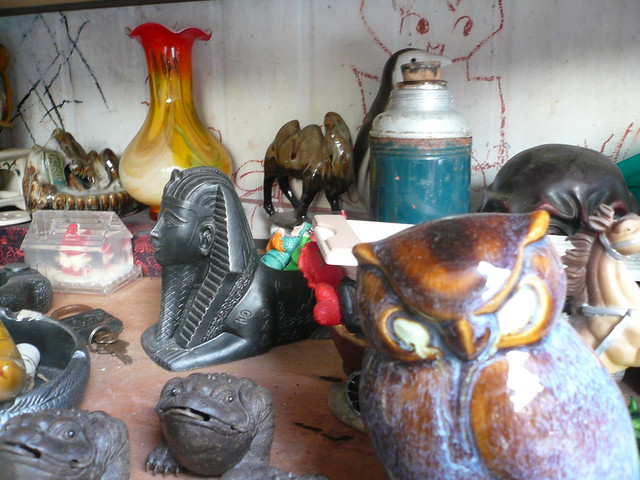
kipple /KIP-əl/. noun. Useless, multiplying junk, dross, rubbish. A word that seems particularly useful in our age of endless digital detritus and debris. Commonly attributed to speculative fiction author Philip K. Dick as a coinage in his 1968 novel Do Androids Dream of Electric Sheep?, this is probably incorrect. It is likely Dick took it from the title of 60s sci-fi fanzine Kipple, a title one less charitable reader had mockingly re-defined as “useless junk.” And that magazine’s editor had himself appropriated the word from an old joke: “Do you like Kipling? I don’t know, I’ve never kippled.” A joke Dick would re-tell in a later novel (Galactic Pot-Healer).
“Kipple is useless objects, like junk mail or match folders after you use the last match or gum wrappers or yesterday’s homeopape. When nobody’s around, kipple reproduces itself. For instance, if you go to bed leaving any kipple around your apartment, when you wake up the next morning there’s twice as much of it.” (Philip K. Dick)
“…the grad students were slavering at the thought of having a bottle-washing dogsbody in residence. Someone to clean out the spam filters, lexically normalize the grant proposals, deworm the Internet of things, get the limescale out of the espresso machine, and defragment the lab’s prodigious store of detritus, kipple, and moop.” (Cory Doctorow)
“Rubin, in some way that no one quite understands, is a master, a teacher, what the Japanese call a sensei. What he’s the master of, really, is garbage, kipple, refuse, the sea of cast-off goods our century floats on.” (William Gibson)
“Related phildickian concepts—such as ‘kipple,’ the self-multiplying detritus of tchotchkes that plague modern life—are also brilliantly explored.” (James Mustich)
“The room, he noted, was cluttered with the kipple of a typical business establishment.” (Richard A. Lupoff)



